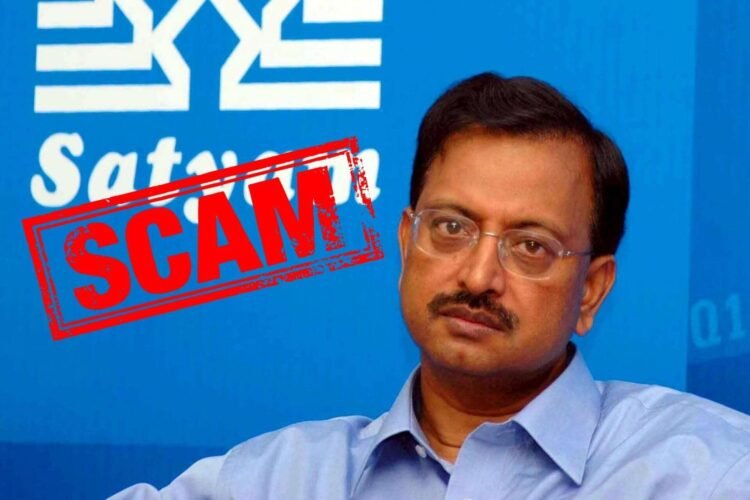The Satyam scandal was a corporate fraud that primarily affected an Indian-based computer service company known as Satyam as well as other partnering companies. The scandal started in 1999 and erupted in 2009 after Merrill Lynch exposed Satyam’s illegal financial practices. Ramalinga Raju, the company’s chairman, corroborated the allegations by revealing that he had been manipulating financial accounts for many years. The scandal shocked the whole world because Satyam was renowned for its exceptional corporate governance. Moreover, the ethics of conducting business, as well as those of the accounting profession, were challenged. For instance, the reputation of PricewaterhouseCoopers was tarnished as it was Satyam’s official accounting firm. The firm was fined highly by the US Securities and Exchange Commission for engaging in unethical accounting practices, violating the code of conduct, and disregarding the auditing standards. The magnitude of the fraud contributed to its comparison to the Enron scandal. Both scandals Continue reading
Business Ethics Case Studies
Case Study on Financial Ethics: The Bernie Madoff Case
On December 11, 2008, as the arrest of Benard Madoff, the former non-executive chairman of NASDAQ and chairman of Bernard L. Madoff Investment Securities LLC, many investors, big firms, banks, charities, universities and even governments were in panic, realizing that they were involved in a giant financial fraud, ‘all just one big lie’. According to an official document on March 12, 2009 from the Department of Justice of United States, Madoff pleaded guilty to eleven felony counts related to a massive Ponzi scheme and faced a statutory maximum sentence of 150 years in prison. Actually, what Mr. Madoff did was simple; He continually paid high returns to existing clients with the funds injected by new investors without engaging in any form of legitimate investment activity and this is what people call ‘the Ponzi scheme’, named after Charles Ponzi who did such kind of financial fraud in 1920’s. However, it is Continue reading
Case Study: Scam of the Century – Bernie Madoff’s Ponzi Scheme
In the world of finance, there are a select amount of manipulative masterminds that sit on a throne of lies. Those who commit these white-collar crimes take advantage of institutions and all classes of people. Ultimately, the enormity of these crimes brings ruin and chaos to the lives of those affected. In this manner, Bernard Lawrence Madoff is just one of these individuals who ran history’s largest Ponzi scheme. To begin, Bernie Madoff was born in Queens, New York in 1938. He received his Bachelor’s degree in Political Science from Hofstra University in 1960 and shortly thereafter started his own firm known as Bernard L. Madoff Investment Securities, LLC., which offered reliable returns, alongside his wife Ruth. Due to the companies growing popularity from those reliable annual returns, his client list grew to include impressive celebrities like Steven Spielberg, Kevin Bacon, and Kyra Sedgwick. Also included were some of the Continue reading
Case Study: The Financial Collapse of the Enron Corporation
Enron began its life in 1985 and appeared to be a rising star in the business world. In conjunction with the accounting firm Arthur Anderson Enron became one of the biggest accounting scandals in history. There were numerous ethical dilemmas in addition to the many illegal acts during rise and fall of Enron. The Enron scandal was the biggest bankruptcy in United States history which cost 4,000 employees their jobs. Once it was obvious that something was amiss with Enron’s bookkeeping, there was action on behalf of the Securities and Exchange Commission. By October 31, 2001 the inquiry had upgraded into a formal investigation and on December 2, 2001 Enron filed for bankruptcy. It was an event that will always be remembered as one of the most disastrous events in the financial world. In late 2001 Enron’s shares drastically dropped from over $90.00 to just pennies which was seen as Continue reading
Case Study: Reasons behind the Bankruptcy of Lehman Brothers
The bankruptcy of Lehman Brothers was a result of the investment bank’s exposure to the 2007-2010 financial crisis. In fact, the demise of the investment bank would come to symbolize the crisis. Therefore, in order to understand the bankruptcy of Lehman Brothers, a consummate understanding of the 2007-2010 financial crisis is requisite. As such, an examination of crisis will serve as introductory. Several factors contributed to the fall of Lehman Brothers. Perhaps most important, however, was the period of deregulation that preceded the crisis. Arguably, the period of deregulation started during the Reagan Era. Reaganomics, the lassiez faire economic policies advocated by the former president, may have served as the starting point for the deregulatory climate that ensued for the following two decades. Either way, the following two decades witnessed an overriding belief in the virtues of deregulation. In 1999, President Clinton signed the Gramm-Leach-Bliley Financial Services Modernization Act into Continue reading
Examples of Unethical Behavior by Organizations
Unethical Behavior by Organizations Anything that a businessman can do in the best interest of society is to be a good businessman. It means that they should try to maximize the profit which is the ultimate target of any business. Here is the point when businessmen think that instead of wasting time and resources with ethics they should focus on finance, marketing and business operations. As long as a business is operating within the rules, the only social responsibility of business is to increase its profit with the use of business resources. Concisely it can be said that remain in open and free competition without being involved in fraud or deception. Multinational corporations operate in countries where bribery, sexual harassment, racial discrimination, and lack of concern for the environment are neither illegal nor unethical or unusual. The company must decide whether to adhere to constant ethical principles or to adjust Continue reading


